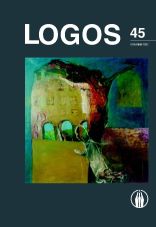KANTAS IR VAIKŲ KAMBARYS
Kant and the Children's Room
Author(s): Saulenė PučiliauskaitėSubject(s): Philosophy
Published by: Visuomeninė organizacija »LOGOS«
Keywords: Kant; Dostoyevsky; Schindler; moral; righteous; good; happiness
Summary/Abstract: The article compares Kant's theory of morality with the moral or personal requirements expressed in children's literature, and Dostoyevsky's The Idiot as a story of a big child. Contrary to Kant's views, where duty and moral law are regarded as a condition of a righteously led life, children's literature (hidden under the metaphor of the 'childrens' room') emphasises the value of goodness. However, when in children's literature being good is a condition of finally achieved happiness, The Idiot, a story of a big child, leads to tragic results. This insight leads to the thought that being good in real life may not be a condition of happiness, and may - on the contrary - lead to total madness. This pessimistic prognosis is modified by the so-called 'Schindler's argument': Schindler was a person who, without being moral sensu strictu, was deeply and unquestionably good, and whose lifestory is not a pessimistic one. So the final point is the conclusion that in real life the attitude of being good must be guided by the decision and evaluation of a person or situation, whether he, she or it is worth it or not.
Journal: LOGOS - A Journal of Religion, Philosophy, Comparative Cultural Studies and Art
- Issue Year: 2006
- Issue No: 45
- Page Range: 60-88
- Page Count: 29
- Language: Lithuanian

